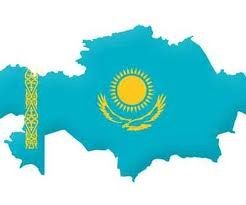ALMATY (TCA) — Kazakhstan’s credit rating has been downgraded by Fitch Ratings with the agency citing the detrimental effect of lower oil prices on the country’s economy, RFE/RL reported on May 1.
Fitch cut Kazakhstan’s credit grade from BBB+ to BBB, the rating company’s second-lowest investment grade.
It was Kazakhstan’s third downgrade since the country’s currency sank in January to a record low amid plummeting oil prices.
The ratings agency said low oil prices led to the Kazakh government’s debt being 22.1 percent of GDP in 2015, a steep jump up from 13.9 percent the previous year.
Fitch also predicted that Kazakhstan’s economy would contract by 1 percent this year.
The agency also pointed to Kazakhstan’s high inflation rate of 15.7 percent in March — the highest such rate in seven years — as a reason for the downgrade.
Earlier, Moody’s lowered the credit rating of Kazakhstan to Ba3 with a negative outlook.
The Atameken National Chamber of Entrepreneurs of Kazakhstan provided a detailed justification for the downgrade on its website.
The main reasons for the downgrade are: the recent drop in oil prices, which greatly weakened the fiscal and economic potential of the country; and increased risk in the banking sector, together with the general decline of the economy and a decrease in the exchange rate of the national currency.
The downturn in the economy, the devaluation of the national currency, as well as a sharp increase in interest rates contributed to the deterioration in capital adequacy ratios and profitability of banks in Kazakhstan.
Many large local lenders continue to report a high proportion of restructured loans (including problem loans in US dollars), thus it is impossible to fully assess the expected credit losses. With a more conservative position (recognition of credit losses), some banks will reduce the capital adequacy ratio below the established norms.
Given that Moody’s predicts low oil prices in the long term, Kazakhstan’s GDP growth forecast in 2016 will amount to 0%, and in 2017 – 1%.
The negative outlook is justified by the continued pressure on the solvency of the banking sector, which limits growth prospects and creates financial and tax risks.








